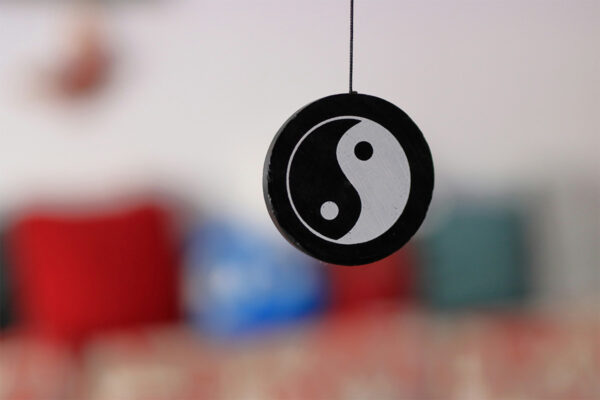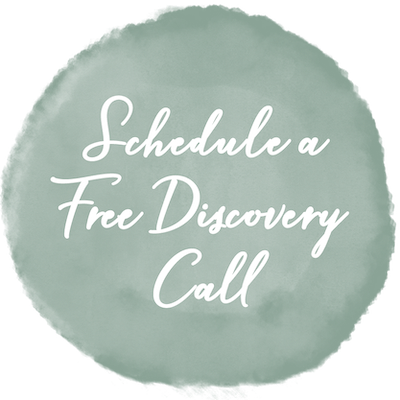Some years ago I wrote about the power of self-compassion during eating disorder recovery. That post felt like a cornerstone for me because learning to speak to myself with gentleness and kindness was one of the biggest shifts that made my recovery possible. Today, however, I want to add another, often-misunderstood companion to self-compassion: anger.
However, I am not thinking about the kind of anger that turns against us, or that we might weaponize toward the parts of us that coped the best way they knew how. Rather, what I mean is the frustration and anger directed at the systems that taught us to distrust and dislike our bodies in the first place: diet culture, thin and beauty ideals, fatphobia, healthism, and the industries that profit when we’re at war with ourselves.
For many of us, anger has been socialized out of reach. It’s been labeled “unladylike” or “too much” or “dangerous.” But I’ve found that in recovery, anger - held with self-compassion - can make such a difference. That it can be the spark that helps you to move forwards - to set a boundary, speak up in a doctor’s office, unfollow a triggering account, or eat a fear food because you will not participate in your own diminishment anymore.
Why Anger Has a Place in Recovery
Anger shows you what you value. It can be a signal that a boundary was crossed or a need was ignored. When your chest tightens hearing coworkers talking about weight loss goals or disparaging theirs or others’ bodies, your anger could be saying, “I care about freedom, respect, and safety,” and that’s information you can use.
Anger can break the trance of shame. Diet culture thrives on our self-blame. Righteous anger turns the lens outward and names the problem where it belongs. This is not your personal failure; it’s a cultural setup.
Anger can fuel courage. Recovery is full of moments where you often have to act before you feel ready. Anger can give you enough heat to do the scary thing - eat the meal, rest instead of exercise, send the text that sets a boundary.
Anger can build solidarity. When you let yourself be mad at systems, you might find your people - those working for body liberation, size-inclusivity, and care that honors our full humanity. Community can make change more possible.
And - anger needs a wise container. This is where self-compassion can come in. Without compassion, anger can scorch. With compassion, anger can become clean and directional. It can say, “No more,” without turning you into the enemy or causing undue harm.
Kristin Neff, who wrote the wonderful book The Power of Self-Compassion, wrote her second and equally-powerful book on this yin and yang of self-compassion, and in an accompanying blog post she writes: “One of the most important lessons I’ve learned over the years is that self-compassion can take very different forms. Sometimes it shows up as tender acceptance—a soft energy that accepts and allows. Other times it spurs fierce action—a powerful energy that sets boundaries, protects what matters, and motivates change. Both energies are expressions of compassion and correspond to the yin and yang principles discussed in Chinese philosophy. And as the wisdom of that tradition emphasizes, balancing yin and yang is needed for a healthy, fulfilling life.”
Why I Don’t Recommend Aiming Anger at Your Eating Disorder Part
If you’ve read my posts on inner dialogues or not making enemies with your eating disorder, you'll know that I view the eating disorder as a protective part, trying to do its best to keep us safe when it truly believes that without it, we wouldn’t be. This doesn’t make its rules right or safe for us, and it doesn’t mean we want it to continue to be in the driver’s seat, but I believe it does necessitate change in how we relate to it.
So perhaps instead of “I hate this part of me,” you could try: “Of course you’re scared. Thank you for trying to keep me safe. I’ve got us now.” We can be fiercely boundaried with our eating disorder while remaining compassionate toward the part of us that formed it. I aim to be this way with my toddler son: I can set a firm boundary that keeps him from kicking his baby brother, while being gentle and empathetic towards the part of him that hates having to share my attention with this new addition.
Self-Compassion and Anger: Two Allies
In my experience, and from what many clients have also shown me, recovery powerfully benefits from both:
Self-compassion: the balm that soothes shame, keeps our nervous system within a window of tolerance, and lets us try again when we slip.
Anger: the spark that says, “I am not consenting to this anymore,” and moves us toward aligned action.
Ways to Feel and Move Anger Wisely
If anger has been off-limits in your body, it can feel big quite fast. Practice pairing your expression with regulation and care. A therapist can be such a helpful ally with this.
Ground first. Try pressing your feet into the floor, take a few slow inhales with longer exhales, or place a hand on your heart (Supportive Touch).
Give it form. Try journaling an “anger letter” to diet culture, that you don’t have to send.
Move it through. Shake your hands out, stomp to a playlist that makes you feel powerful, walk briskly and breathe.
Use your voice. Sing loudly in the car or shower. Read a poem out loud. Growl or scream into a pillow if that feels good to your system.
Reconnect after. Offer yourself warmth, tea, a breath of fresh air. Remind your body, “It’s safe to feel and it’s safe to settle.”
What Anger Might Sound Like in Recovery
“I’m angry that I was taught that my natural body size wasn’t good enough, and that I was only loveable if I looked a certain way. I am choosing to do the hard work of unlearning this.”
“I’m angry that a number tried to decide my worth. I refuse to step on that scale.”
“I’m angry that I was praised for my symptoms. I’m redirecting praise to my courage and my tenderness.”
“I’m angry at the lie that health has a look. I’m opting out and defining care on my terms.”
And then, the compassionate hand on your own heart: “Of course you’re angry. It makes sense. I’m right here with you.”
A Note on Intersectionality
Diet culture doesn’t exist in a vacuum. Sabrina Strings and many others write beautifully about how patriarchy, racism, ableism, anti-fat bias, and colonization shape which bodies are seen as deserving of safety and care. If anger brings you to grief or advocacy around these larger systems, this can be meaningful work. And it’s fully okay if your activism is focused solely on healing your relationship with your own body. Whatever feels authentic for you, is the right, and transformative, thing.
Bringing It Together
Together, anger and self-compassion can help us do the brave thing and then hold ourselves while we do it. They can help us to aim our fire where it belongs - out at the systems that taught us that we were wrong, that we were only conditionally loveable - while we keep tenderness for the parts of us that survived inside of them as best they knew how.
With love and admiration for both your hardness, and your softness,

Journaling Prompts:
- Where does your anger show up around food, body, or recovery lately? What values could it be pointing to?
- When you feel anger turn inward toward your ED part, what unmet need might that part be trying to meet for you (eg. safety, predictability, belonging, soothing)? What is one gentler way you could try meeting that need today?
- After a particularly angry moment, how could you offer yourself self-compassion? Draft a sentence you can return to, such as, “It makes sense that this hurts. I’m proud of how I showed up."
Support For Your Journey
If you feel you could use more support on your eating disorder recovery journey I would love to connect with you. Contact me to book a free video discovery call so that we can explore if working together would be a good fit. I would love to hear from you.











